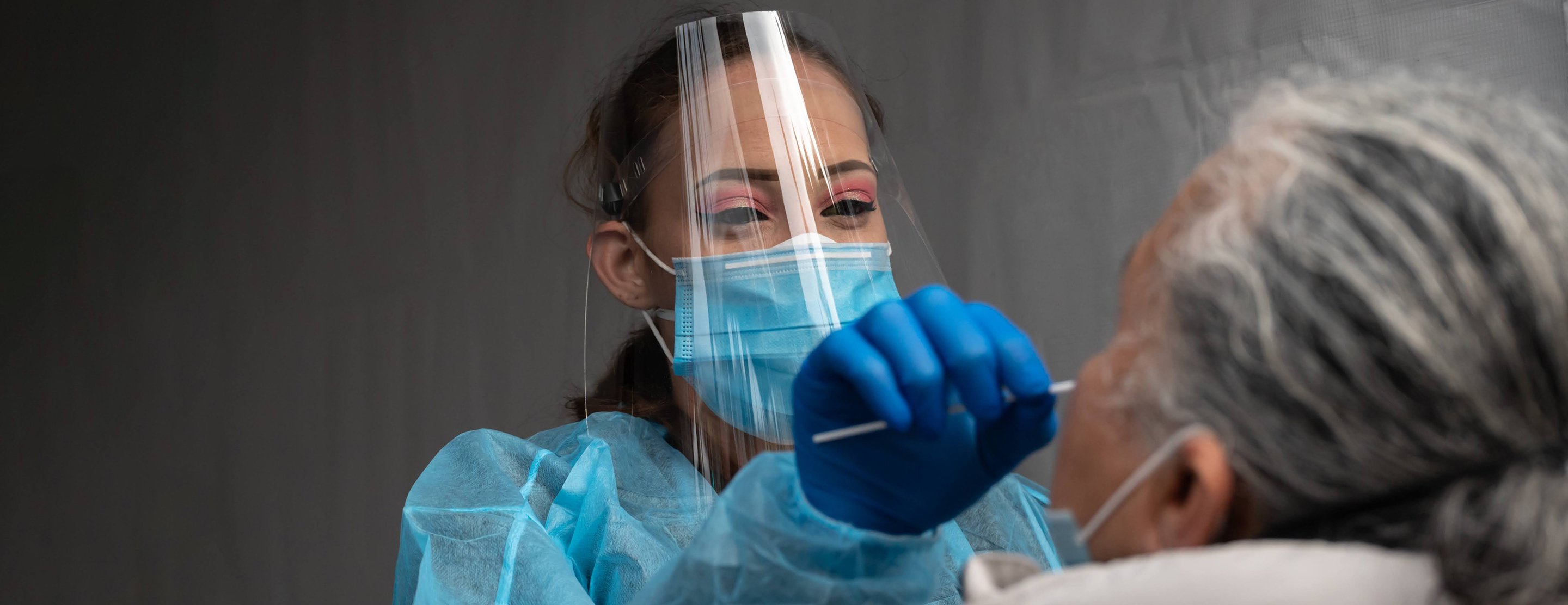| Español |
Last updated October 1, 2025

| Español |
Last updated October 1, 2025
The symptoms of COVID-19 infections can range from very mild to severe, and some people have no symptoms at all. They can appear in as few as two days up to 14 days after exposure. For more information, visit the California Department of Public Health’s website.
Contact your primary care provider to learn about your options for testing and treatment.
If you're a patient at the UCSF Helen Diller Family Comprehensive Cancer Center, contact the staff for specific instructions before scheduling a testing appointment in MyChart.
If you have a medical emergency, call 911 and notify the dispatch personnel that you might have COVID-19 or are being evaluated for COVID-19 infection.
If you're sick, contact your primary care provider so we can determine the urgency of your situation. If you think you're experiencing a medical emergency, call 911 immediately.
UCSF requires patients awaiting lung transplants to be fully vaccinated against COVID-19. We also strongly encourage this for patients awaiting kidney, liver, pancreas and heart transplants.